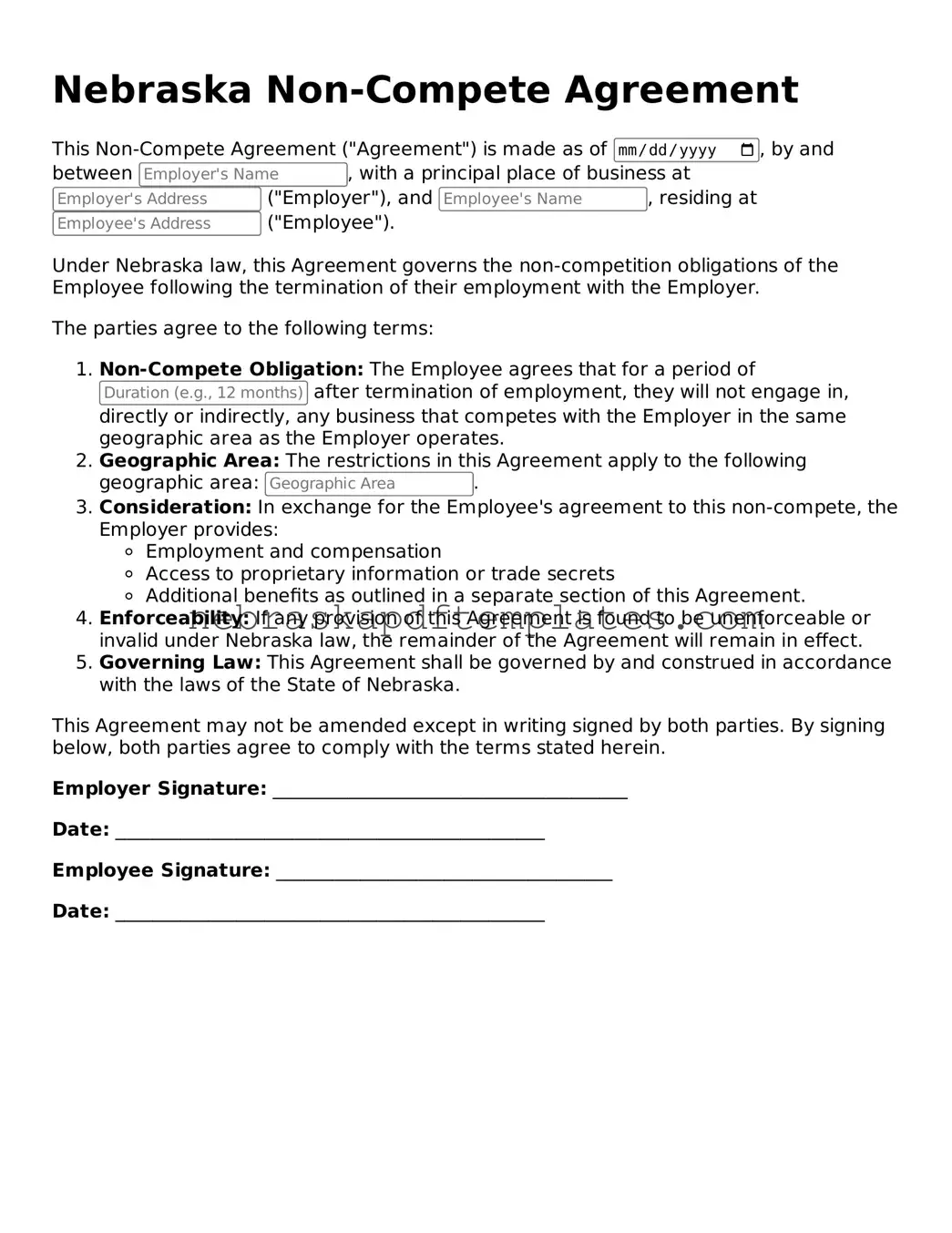Attorney-Verified Non-compete Agreement Document for Nebraska
A Nebraska Non-compete Agreement form is a legal document that restricts an employee from engaging in similar work within a specified area for a certain period after leaving a job. This agreement aims to protect a company's trade secrets and competitive edge. If you’re considering implementing this form, fill it out by clicking the button below.
Access Editor Here

Attorney-Verified Non-compete Agreement Document for Nebraska
Access Editor Here
Finish your form now
Finalize Non-compete Agreement online — edit, save, and download effortlessly.
Access Editor Here
or
➤ Non-compete Agreement
